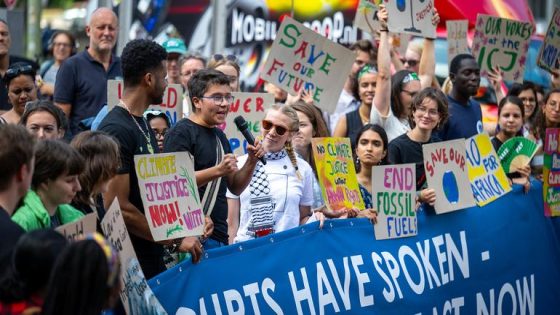The UN’s principal judicial body has made a landmark ruling that States must protect the environment from greenhouse gas emissions, emphasizing their legal obligations under international law. This decision, announced on 2025-07-23 21:56:00, aligns with the Paris Agreement’s goal to limit global warming to 1.5°C above pre-industrial levels.
- States must protect the environment from GHG emissions.
- Obligations include the Paris Agreement's climate goals.
- Breaches may incur legal responsibility and reparations.
- UN Secretary-General calls it a planetary victory.
- Court's ruling based on environmental and human rights treaties.
- Largest case in ICJ history with 97 participants.
UN Secretary-General António Guterres hailed this ruling as a significant victory for climate justice and the youth’s advocacy for a sustainable future. The Court’s decision underscores that States could face legal repercussions if they fail to meet these environmental obligations.
This ruling raises critical questions about the future of international climate law. Will this decision prompt countries to take more aggressive action against climate change? The implications are profound, as nations now face potential legal accountability for environmental harm.
- States are legally bound to protect the environment.
- Failure to comply could lead to legal repercussions.
- The ruling reinforces commitments under the Paris Agreement.
- Youth advocacy played a pivotal role in this outcome.
As we look ahead, it is crucial for governments to embrace this ruling and act decisively to combat climate change, ensuring a sustainable future for generations to come.

































